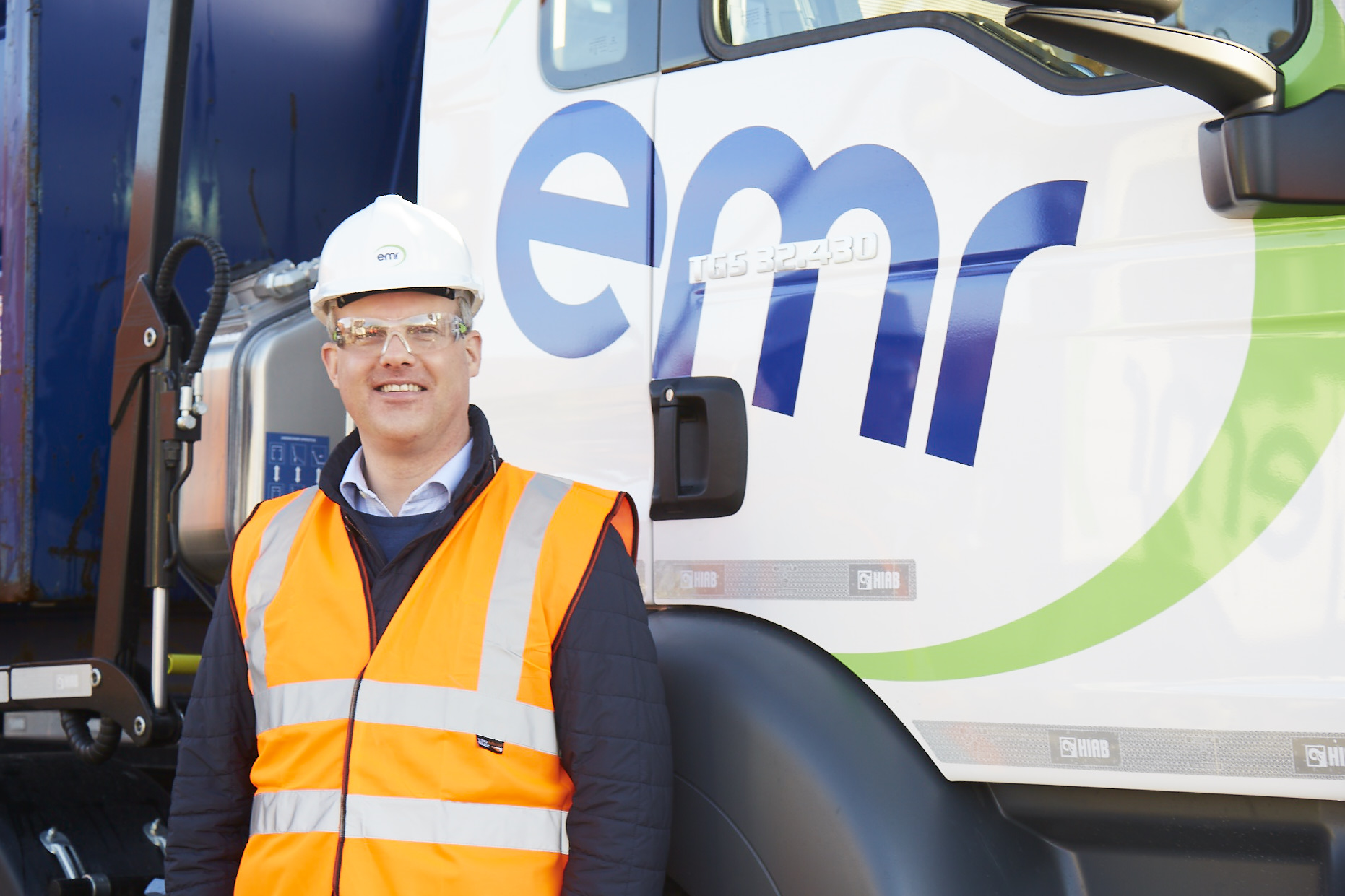CHOOSE
A DIFFERENT TERRITORY

Let's start with a quick quiz: What does your fridge, car and a state-of-the-art US naval aircraft carrier have in common?
The answer is they can all be recycled, along with thousands of other items, by the team at EMR. As Recycling Week arrives (20 - 26 September), it’s the perfect opportunity to remind our customers, partners and employees why recycling plays such a vital role in the future of the whole planet.
As one of the world’s leading recycling businesses, we believe that ensuring your waste is recycled, where possible, at both work and at home, is one of the most positive and practical ways for any of us to fight climate change and protect biodiversity.
While walking to work and turning off a light switch makes a contribution to the fight against climate change, recycling with EMR puts material directly back into the supply chain to create a new generation of sustainably-made products to be used in cars and produce structural steel and copper pipe for buildings, for example.
It also means we keep more of our precious resources close to home and avoids the need for mining new raw materials in environmentally sensitive areas.
This is essential as the Earth’s minerals are finite resources.
That’s why manufacturers are increasingly looking to firms like EMR to utilise the potential of the ‘urban mine’, the resource-rich waste stream in developed nations, where old electronics, end-of-life vehicles and other products can be ‘mined’ for their metals and plastics.
And the good news is that we’re getting even better at what we do. Thanks to investment in our processes and our people, EMR is finding new ways to increase the yield from our recycling facilities and improve efficiency.
All this, while also working hard to hit net-zero as part of Our Decade of Action sustainability strategy.
EMR is working with the steel industry to provide the premium grades of recycled metal they need to make zero carbon, green, steel, for example, borrowing innovative technology from industries as varied as food production and mining to separate, sort and process the material we receive.
We’re also getting ready for the huge changes that are going to transform our economy (and our daily lives) in the years ahead. Partnering with car makers including BMW, Jaguar Land Rover and Bentley, EMR is busy creating a new supply chain for end-of-life, electric, vehicle batteries. With funding from the Government’s Advanced Propulsion Centre and using the expertise of academics at the University of Warwick and the UK Battery Industrialisation Centre, among others, we’re busy making sure these material-rich batteries are re-used or recycled at the end of their life.
Projects such as these are essential if recycling is to play a key role in the circular economy of the future and EMR is at the heart of it.
But we’re not alone.
Across the economy businesses are investing in new ways to improve and increase recycling rates. One example is CEFLEX, a major collaboration of consumer goods firms including Unilever, GSK and Cadbury-brand owner Mondelez International alongside the rest of the packaging supply chain. Many types of flexible packaging (used for crisp packets, cereal bags and more) are made of multiple layers of plastic, making them hard to recycle. The CEFLEX initiative brings together brands, packaging converters, product designers, retailers, waste companies and recyclers to simplify flexible packaging design to make them more recyclable.
It's another example of how businesses are collaborating to improve recycling and build a more sustainable, circular world.
Yet, this also requires individuals and businesses, with the support of government, to recycle their waste materials in the first place. By doing so, we will be able to avoid habitat destruction, reduce our carbon emissions and begin the process of cleaning up our planet.
So, why recycle? There’s literally a world of reasons.